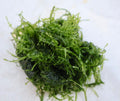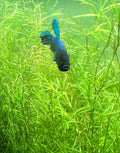Identifying a Dying Guppy Fish
Guppy fish, also known as Poecilia reticulata, are a popular freshwater aquarium fish. These small, colorful fish are relatively easy to care for and are known for their playful and active nature. However, like any living creature, guppies are susceptible to various health issues that can lead to their demise. As an aquarium enthusiast, it is essential to know how to identify if a guppy fish is dying, so you can take appropriate measures to address the issue and keep your fish healthy.
Symptoms of Dying Guppy Fish
The following are some common symptoms that can indicate that your guppy fish is in poor health and may be dying:
-
Loss of Appetite: If your guppy is not eating or appears to be uninterested in food, it could be a sign that something is wrong. Loss of appetite can be caused by several factors, including stress, poor water quality, or illness.
-
Lethargy: Guppies are known for their active and playful nature. If you notice that your guppy is spending most of its time at the bottom of the tank or hiding in a corner, it could be a sign that it is not feeling well.
-
Difficulty Swimming: If your guppy is having trouble swimming, such as swimming erratically, swimming upside down, or sinking to the bottom of the tank, it could be a sign of swim bladder disease or other health issues.
-
Changes in Appearance: Any changes in your guppy's appearance, such as a loss of color, bloating, or deformities, can be an indication that something is wrong. Additionally, if you notice any physical signs of injury or illness, such as redness, sores, or lesions, it is essential to take action immediately.
-
Rapid Breathing: If your guppy is breathing heavily or rapidly, it could be a sign of poor water quality or respiratory illness.
-
Fungal or Bacterial Infections: Guppy fish are prone to fungal and bacterial infections, which can be deadly if left untreated. Common signs of these infections include white spots, redness, or discoloration on the skin, fins, or gills.
-
Parasites: Parasites can also cause your guppy fish to become ill and die. Symptoms of parasitic infections include a loss of appetite, lethargy, and visible parasites on the skin, gills, or fins.
What to Do if Your Guppy is Dying
If you suspect that your guppy fish is in poor health and may be dying, it is essential to take action immediately. Here are some steps you can take to help your guppy recover:
-
Check the Water Quality: Poor water quality can be a significant cause of guppy fish illness. Make sure to regularly test the water in your aquarium and maintain proper water chemistry levels, including pH, ammonia, nitrate, and nitrite.
-
Quarantine Sick Fish: If you have multiple fish in your aquarium, it is essential to isolate any sick fish to prevent the spread of disease to healthy fish.
-
Treat for Illness: Depending on the symptoms your guppy is displaying, you may need to treat for specific illnesses. For example, swim bladder disease can be treated by feeding your guppy a diet of peas, while fungal infections may require the use of antifungal medication.
-
Provide Proper Nutrition: Guppy fish require a balanced diet to maintain their health. Make sure to feed your guppy a variety of foods, including high-quality fish flakes, frozen or live food, and vegetables.
-
Seek Veterinary Care: If your guppy's condition does not improve or worsens despite your efforts, it is essential to seek veterinary care. A qualified veterinarian can diagnose and treat your guppy.

















Every guppy I buy lives just a few months after I buy it. I have bought them at Petsmart, Petco and aquarium stores. I found yesterday morning the partially eaten remains of a female I had bought a month earlier. That makes about 7 or more that I have lost. I have tried multiple females to one male and my community tank has ample vegetation and hiding areas. I have mollies that have bred and their fry grew to maturity. I have floating plants that the molly fry hid in until mature.
My gupyy fish start to die. at first they start to make wite spots and after discoloured. they get black tails and after they die I don’t know what’s going on with them and I don’t know what to do.